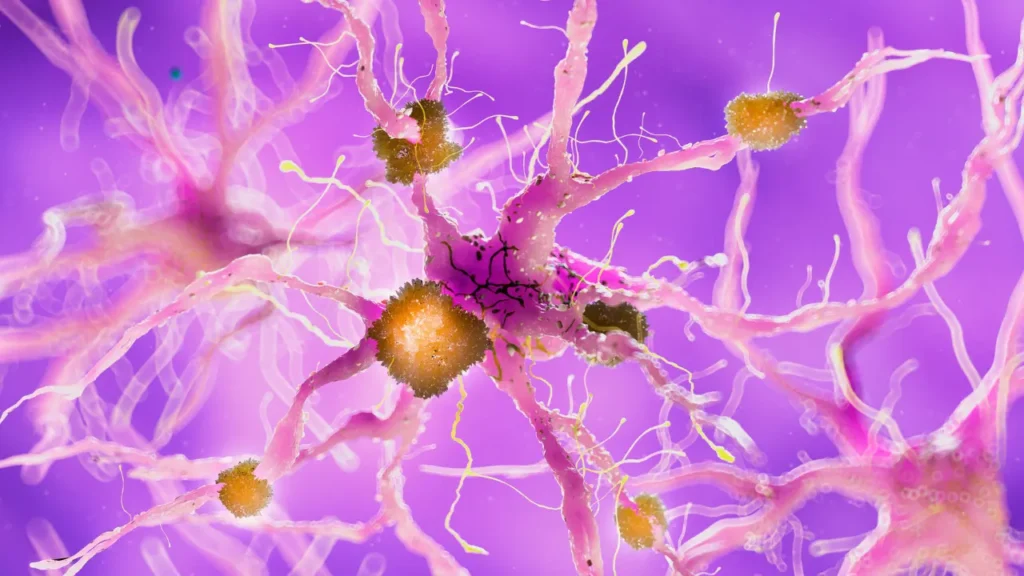Native to North America, Black Haw, often referred to as cramp bark, is a deciduous shrub. Indigenous people have utilized this plant for millennia as a medicine, primarily to relieve labour pains, dysmenorrhea, and menstrual cramps. Compounds found in the bark of the Black Haw shrub have been demonstrated to provide a number of health advantages, including anti-inflammatory and antispasmodic properties. Black Haw has become more widely used in recent years and has become increasingly well-liked as a dietary supplement.
You May Also Like:
5 Great Nootropic Herbs for Focus and Mental Clarity
5 Great Nootropic Herbs for Energy, Focus, and Productivity
Black Haw: Benefits, Dosage, Side Effects, Drug Interactions, and Other Important Information is an original (NootropicsPlanet) article.
Nature of Black Haw
Native to North America, Black Haw is a deciduous shrub also known as cramp bark. It belongs to the genus Viburnum and shares a family tree with elderberry and hawthorn. Indigenous people have employed the Black Haw shrub for millennia for its therapeutic virtues, which are primarily found in the bark of the plant.
A resilient plant, Black Haw can flourish in a range of climatic conditions and soil types. It is a quick-growing shrub that can grow up to 15 feet tall and blooms with tiny white flowers in the spring. The oval, glossy leaves of the Black Haw shrub contrast with the gray, rough-textured bark.
The Black Haw shrub is a significant plant in traditional medicine and has been used to treat a number of illnesses, such as labor pains, dysmenorrhea, and menstrual cramps. Black Haw has become more widely used in recent years and has become increasingly well-liked as a dietary supplement.
Health Benefits of Black Haw
For its therapeutic properties, Black Haw has been utilized as a natural treatment for ages. Several health advantages of the active ingredients in Black Haw, including flavonoids, tannins, and alkaloids, have been demonstrated.
- Anti-inflammatory properties: Black Haw has been demonstrated to have anti-inflammatory properties, making it effective in the treatment of inflammatory diseases such inflammatory bowel disease and arthritis.
- Antispasmodic effects: Black Haw is a naturally occurring antispasmodic, which means it can aid in reducing cramps and muscle spasms. Because of this, Black Haw can be used to alleviate labour pains, dysmenorrhea, and menstrual cramps.
- Antioxidative benefits: Black Haw has a lot of antioxidants, which can help shield cells from oxidative stress-related cell damage. Numerous health advantages may result from this, including defence against cancer, cardiovascular disease, and neurological disorders.
- Digestive health: Black Haw has been demonstrated to lessen the signs and symptoms of diarrhoea and other digestive diseases, and it may be effective in the treatment of ailments including Crohn’s disease and irritable bowel syndrome.
- Cardiovascular health: It has been demonstrated that Black Haw has a beneficial impact on cardiovascular health, including lowering blood pressure and enhancing circulation.
- Cognitive function: It has been demonstrated that Black Haw has a beneficial impact on cognitive function, including enhancing memory and lowering the risk of age-related cognitive decline.
Overall, Black Haw is a supplement that is secure and productive and offers a range of health advantages. Before using Black Haw, you should however see a healthcare professional, especially if you are expecting, breastfeeding, or taking any medications.

Chemistry of Black Haw
The bark of the shrub, which is abundant in flavonoids, tannins, and alkaloids, is where most of the active ingredients in Black Haw are to be found. The hydroxy-phenylethanolamines, which comprise epicatechin, catechin, and procyanidins, are the most prevalent alkaloids in Black Haw. These substances are well known for their antioxidant, antispasmodic, and anti-inflammatory properties.
In addition to alkaloids, Black Haw also includes tannins, a class of polyphenolic substances with astringent effects. Tannins can be used to treat diarrhea and other digestive issues because research has shown that they have a protective impact on the intestinal mucosa.
The antioxidant and anti-inflammatory benefits of Black Haw are attributed to the flavonoids that are present in it. These substances include quercetin, kaempferol, and myricetin, which have been demonstrated to provide a variety of health advantages, such as the reduction of inflammation and protection against oxidative stress.
Physiological Mechanisms of Action
It has been demonstrated that Black Haw has a number of physiological actions that add to its health advantages. Its capacity to function as a natural antispasmodic, which can aid in the relief of muscle cramps and spasms, is one of the main mechanisms of action.
It is thought that Black Haw’s anti-inflammatory properties result from its capacity to suppress the generation of pro-inflammatory cytokines and other signaling molecules. Because of this, Black Haw can be used to treat inflammatory diseases like inflammatory bowel disease and arthritis.
The health advantages of Black Haw are also thought to be influenced by its antioxidant qualities. The condition known as oxidative stress, which occurs when the body is unable to efficiently neutralize dangerous free radicals, damages cells and is prevented by antioxidants. Numerous health issues, such as cancer, neurological disorders, and cardiovascular disease, can result from this.
It has also been demonstrated that Black Haw’s capacity to function as a natural antispasmodic and anti-inflammatory agent has positive effects on the digestive tract. It has been demonstrated to lessen the symptoms of diarrhea and other digestive issues, and it may be helpful in the treatment of diseases like Crohn’s disease and irritable bowel syndrome.

Optimal Dosage of Black Haw
The ideal Black Haw dose is determined by a number of variables, including as the user’s age, weight, and overall health. Additionally, the way Black Haw is consumed matters because different preparations may differ in how potent they are.
Adults are advised to take between 500 and 1000 mg of Black Haw daily as a general rule. This can be consumed as a tea, tincture, or pill.
As Black Haw may cause side effects in some people, it is important to start with a low dose and gradually increase to the recommended dose over time. Before using Black Haw, especially if you are pregnant, breastfeeding, or taking any medications, it is also advisable to see a healthcare professional.
Side Effects of Black Haw
When used in accordance with approved dosages, Black Haw is generally regarded as safe. However, taking Black Haw may have negative side effects for some people. The most typical adverse effects include stomach upset, nausea, and vomiting. Most of the time, these adverse effects are minor and can be treated with a dose reduction or stoppage of use.
Rarely, Black Haw may result in more severe side effects, such as allergic reactions, which can cause hives, itching, and breathing difficulties. It’s crucial to get medical help right away if you develop any of these symptoms.

Potential Substance Interactions with Black Haw
Anti-inflammatory, antispasmodic, and blood thinner medications, among others, may interact with Black Haw. If you are currently on any medications, it is crucial to consult your doctor before using Black Haw since it may reduce their effectiveness or increase their risk of negative effects.
Additionally, because Black Haw can reduce the absorption of minerals like calcium and iron, it may interact with other supplements. To prevent any possible interactions, it is crucial to take Black Haw at least two hours before or after taking these supplements.
Responsible Uses of Black Haw
When used as directed, Black Haw is a safe and reliable supplement. However, in order to achieve the best health results, it is crucial to use Black Haw responsibly.
Before taking Black Haw, especially if you are pregnant, breastfeeding, or taking any medications, it is crucial to see a healthcare professional. This will assist in making sure that you are receiving the right dosage of Black Haw and that it is safe for you.
Additionally, it’s crucial to only take Black Haw from reliable sources because some products might contain contaminants or might not have the right amount of Black Haw in them. It’s crucial to take Black Haw exactly as prescribed and to abstain from using it for prolonged periods of time without the advice of a healthcare professional.
Black Haw:
Conclusion
Black Haw may be a helpful natural resource for those who are suffering from gut troubles or painful and irregular menstruation. This may be a good option for those who are dealing with polycystic ovary syndrome (PCOS), as it decreases cramps and can provide relief from cystic pain.
If you have been having consistent menstrual or labor pains, it is best to visit your doctor before taking any Black Haw supplements to determine the best course of action. With your doctor’s approval, you can take Black Haw before your other supplements in the morning or when you’re about to go to bed, allowing you to get relief from pain throughout the night and wake up well rested.

References:
- “Cramp Bark (Viburnum opulus) – Herbal Medicine – NCBI Bookshelf.” National Center for Biotechnology Information, U.S. National Library of Medicine, www.ncbi.nlm.nih.gov/books/NBK92775/.
- “Cramp Bark (Viburnum opulus) – Natural Medicines.” Natural Medicines, the Authority on Integrative Medicine, naturalmedicines.Retrieved From: https://naturalmedicines.therapeuticresearch.com/databases/food,-herbs-supplements/professional.aspx?productid=959
- “Cramp Bark: Uses, Side Effects, Interactions, Dosage, and Warning.” WebMD, WebMD, https://www.webmd.com/vitamins/ai/ingredientmono-746/cramp-bark.
Important Note: The information contained in this article is for general informational purposes only, and should not be construed as health or medical advice, nor is it intended to diagnose, prevent, treat, or cure any disease or health condition. Before embarking on any diet, fitness regimen, or program of nutritional supplementation, it is advisable to consult your healthcare professional in order to determine its safety and probable efficacy in terms of your individual state of health.
Regarding Nutritional Supplements Or Other Non-Prescription Health Products: If any nutritional supplements or other non-prescription health products are mentioned in the foregoing article, any claims or statements made about them have not been evaluated by the U.S. Food and Drug Administration, and such nutritional supplements or other health products are not intended to diagnose, treat, cure, or prevent any disease.


